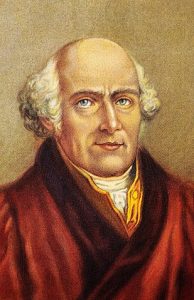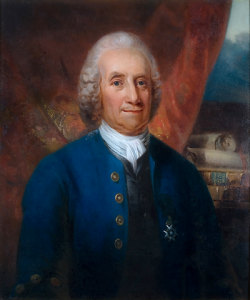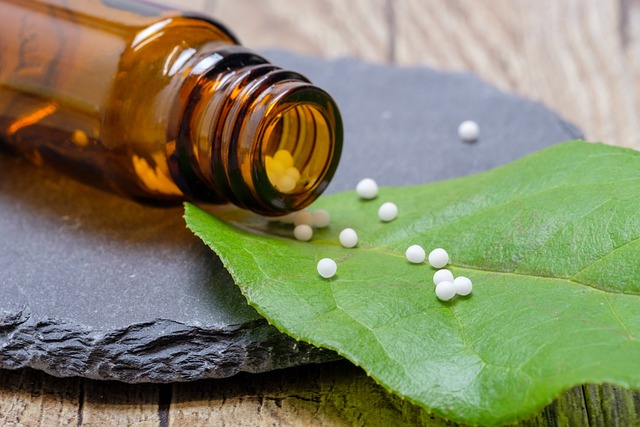 AA asks: “I don’t understand why homeopathy is so controversial. Isn’t it just a kind of herbal medicine? And if it’s so bad, why do drug stores sell it?”
AA asks: “I don’t understand why homeopathy is so controversial. Isn’t it just a kind of herbal medicine? And if it’s so bad, why do drug stores sell it?”
Great questions!
The reason why homeopathy remains one of the most controversial of all alternative medicines is because 1) it is based upon implausible concepts such as the “memory of water” and the existence of a “vital force”; 2) it has been thoroughly disproven in modern scientific testing; 2) it’s presence on drug store shelves is due to political maneuvering rather than to the safety and efficacy of the products.
Let’s take these issues one at a time.
First, the word homeopathy is derived from the Greek words homoios (similar) and pathos (suffering or disease) and describes a system for treating illness based on the premise that like cures like. “The homeopath treats symptoms by administering minute or non-existent doses of a substance which in large amounts produces the same symptoms in healthy individuals,” explains Edzard Ernst, MD. “Homeopaths focus on treating patients as individuals and claim to be able to treat virtually any ailment, from colds to heart disease.”
Although frequently referred to as a form of herbal medicine, homeopathy does not fit into this category mainly because homeopathic tinctures can contain substances other than plants. For example, homeopathic medicines can contain whole animals such as honeybees or animal secretions such as wolf milk or snake venom. Mineral sources are also used such as salt or gold, as well as “diseased” substances such as pus, vomit, feces, warts, and tumors.
The man responsible for inventing homeopathy was an 18th Century German physician, Samuel Hahnemann (1755-1843). Educated in medicine at Leipzig, Vienna and Erlangen, Hahnemann was considered to be an intellectual with a distinguished medical career. He published subjects on medicine and chemistry and seemed to be headed for a long and storied career, until some time during the 1780’s when he began to question many of the healing methods of the time such as bleeding, purging, cupping, and the use of excessive doses of mercury.
He began to develop his own form of medicine and was experimenting with a drug known as Cinchona. Derived from the bark of a Peruvian tree, it contains quinine, a drug that was being used successfully to treat malaria. He took the drug, hoping it would keep him healthy and protected from malaria, but his condition actually began to deteriorate. He developed symptoms similar to malaria sufferers such as fevers, shivering, sweating.
Intrigued, he began to experiment with other treatments and found that substances used to treat sick people caused the same symptoms in healthy people. “By reversing the logic, he proposed a universal principle, namely, ‘that which can produce a set of symptoms in a healthy individual, can treat a sick individual who is manifesting a similar set of symptoms’.” This became his Law of Similars which would go on to become what he believed was the scientific foundation of homeopathy.
However, Hahnemann was also a believer in the existence of a universal life force which he referred to as a vital force. “Hahnemann proposed that this life force, something akin to the spirit, permeated the body and entirely determined a person’s well-being,” Ernst explains.
Because the ultimate goal of his method was to restore a person’s vital force, he continued to try to improve the effect of his Law of Similars, which he believed could be done by diluting the tinctures.
These dilutions have become a major source of the controversy surrounding homeopathic solutions because some are so excessive that there is only a one-in-100,000 chance that a pill will contain one molecule of the original substance.
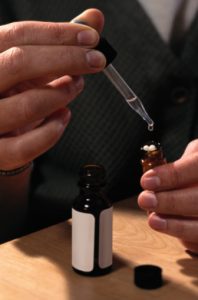 The so-called “breakthrough” of dilution was followed by yet another which occurred one day while Hahnemann was riding in a horse-drawn carriage. He believed that the vigorous shaking of the vehicle had increased the potency of his homeopathy remedies, and began to recommend that these medicines not only be diluted, but shaken as well which he referred to as succussions. This is how the process of creating homeopathic drugs – through a combination of dilution and shaking called potentization – came to be invented.
The so-called “breakthrough” of dilution was followed by yet another which occurred one day while Hahnemann was riding in a horse-drawn carriage. He believed that the vigorous shaking of the vehicle had increased the potency of his homeopathy remedies, and began to recommend that these medicines not only be diluted, but shaken as well which he referred to as succussions. This is how the process of creating homeopathic drugs – through a combination of dilution and shaking called potentization – came to be invented.
Now here’s where it gets weird. Homeopaths believe that this combination of dilution and potentization supposedly produces another phenomenon known as “the memory of water” which supposedly enables homeopathic drugs to cure. Modern homeopaths believe that this ‘potentization’ process allows the water to retain the ‘memory’ or ‘vibrations’ of the original substance, long after it has been diluted away to almost nothing.
In other words, the water remembers everything that ever touches it, a claim that defies the laws of science.
Since its creation nearly 200 years ago, homeopathic doctors have been locked in a dire struggle to see their methods validated by modern science. Time and again, research they believed was proof of its efficacy, such as the 1988 “breakthrough” research of a French scientist named Jacques Benveniste, and the 1997 study of researcher Klaus Linde of the Munich-based Centre for Complementary Medicine Research, were found lacking due to substandard methodology.
This led to the 1998 statement published by the prestigious Lancet which stated, “…[W]e found insufficient evidence from these studies that homeopathy is clearly efficacious for any single clinical condition. Further research on homeopathy is warranted provided it is rigorous and systematic.
Unforunately, the call for more rigorous and systematic research on homeopathy was never sufficiently answered, causing the Lancet to issue another statement in 2008 entitled, “The End of Homeopathy,” in which it states that “Surely the time has passed for selective analyses, biased reports, or further investment in research to perpetuate the homeopathy versus allopathy debate. Now doctors need to be bold and honest with their patients about homeopathy’s lack of benefit…”
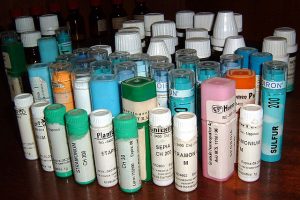 As a result of nearly two centuries of failed scientific evidence, the UK’s House of Commons Science and Technology Committee conducted a study on homeopathy and concluded that it works no better than placebo and should no longer be paid for by the National Health Service. This report was a devastating blow to the homeopathic industry in a country where homeopathic hospitals are popular and the members of the royal family, such as Prince Charles, are staunch supporters. The report doesn’t stop with urging the UK to rethink its healthcare policies regarding homeopathy; it also urges countries where homeopathy is popular such as Germany, France and Austria to discontinue government funding.
As a result of nearly two centuries of failed scientific evidence, the UK’s House of Commons Science and Technology Committee conducted a study on homeopathy and concluded that it works no better than placebo and should no longer be paid for by the National Health Service. This report was a devastating blow to the homeopathic industry in a country where homeopathic hospitals are popular and the members of the royal family, such as Prince Charles, are staunch supporters. The report doesn’t stop with urging the UK to rethink its healthcare policies regarding homeopathy; it also urges countries where homeopathy is popular such as Germany, France and Austria to discontinue government funding.
In spite of the overwhelming evidence against homeopathic drugs, unwary consumers are falling into the snare of purveyors of homeopathic remedies who post so-called scientific evidence on their websites, all of which fall apart upon closer inspection. For example, a frequently cited study is one that was published in the Scientific World Journal in 2007 which was actually conducted on tadpoles, making the conclusions irrelevant to humans.
In the U.S. these misrepresentations only add up to more confusion for the public who remains largely unaware of the scientific controversy surrounding homeopathy. One reason is because they see homeopathic remedies freely sold over-the-counter in most drug stores. How could treatments that are this implausible be so readily available in the US and beyond?
The reason why homeopathic drugs are so accessible in the U.S. is not due to their possible effectiveness, but solely because of politics. Thanks to the work of Senator Royal Copeland, a homeopathic physician who served in the U.S. Senate from 1923 until his death in 1938, the Homeopathic Pharmacopeia of the United States was included in the 1938 Federal Food, Drug and Cosmetic Act.
For decades, these drugs were in wide circulation; however, information recently obtained from the Food and Drug Administration (FDA) by a physician under the Freedom of Information Act found that approval of several dozen homeopathic products was withdrawn in 1970 and no homeopathic drugs have been approved since.
Since that time, the FDA has moved to crackdown on homeopathic medicines and has issued numerous warnings to homeopathic drug manufacturers such as Zicam which was ordered to stop marketing three products that contained zinc gluconate after more than 100 users reported losing their sense of smell. The Agency also issued warnings against the use of homeopathic teething tablets distributed by CVS, Hylands and others after reports of adverse effects in children such as seizures, difficulty breathing, lethargy, excessive sleepiness, muscle weakness, etc. The tablets were found to contain elevated and inconsistent levels of belladonna, a toxic substance, that was linked to 400 injuries and the deaths of 10 children.
Last, Christian consumers also need to be aware of Hahnemann’s spiritual background and how his ideas shaped the field of homeopathy.
Hahnemann was a member of Germany’s Protestant Lutheran church but he was also a self-described Deist and a Freemason (Lodge of St. Andrew of the Three Lotuses) who took Confucious as his model. He considered the founder of Swedenborgianism, Emanuel Swedenborg (1688-1772), to be his mentor. Swedenborg was a Swedish scientist, theologian and philosopher who experienced mystic dreams and trances and believed he was appointed by Christ to write the real meaning of the Bible. He also believed that he was in communication with Moses, the apostle Paul, the Blessed Virgin Mary and Martin Luther as well as spirits from another planet. He taught his followers that spiritual entities were intermediaries between God and man and that God sometimes uses them to communicate with mankind.
This explains why, in spite of Hahnemann’s empirical methods, the Organon, which is frequently referred to as the “Bible” of homeopathy, is full of references to a spiritual vital force, the same putative energy form that is described as “the New Age god” in the Vatican document, Jesus Christ the Bearer of the Water of Life.
In spite of this energy having no basis in science, homeopaths believe that “In healthy individuals, this ‘dynamistic, immaterial, vital energy, animating the material part of the human body, reigns absolutely.’ Since they see disease as resulting from a disturbance in ‘vital energy by dynamistic influence,’ healing requires restoration of balance “by a spirit-like (dynamic) process,” reports Candy Gunther Brown, Ph.D., in The Healing Gods. Homeopathy works to “’potentize’ or ‘dynamize’ the spirit-like medicinal power believed to be latent in material substances, so that it is ‘excited and enabled to act spiritually upon the vital forces’.”
Just what spiritual forces are being called upon in the creation of these formulas is a concern for Christians.
“ . . . [T]he answer to the question of whether homoeopathy involves the occult is not immediately evident. It depends on where the ‘immaterial and vital’ force is thought to originate from. This will follow to some extent, but not necessarily wholly, from the therapist’s world-view. There is certainly evidence from continental Europe of a link between homoeopathy and the occult, where it has been alleged that homoeopathic practitioners carry out research during seances and use occult practices such as the pendulum,” reports the Christian Medical Fellowship.
While the Catholic Church has issued no statement in favor of, or opposed to, the use of homeopathic remedies, there are numerous proponents of homeopathy who believe the use of these remedies by persons such as St. Teresa of Calcutta or Pope John Paul II, indicates at least a tacit approval of the remedies.
For example, American homeopath Joette Calabrese offers a long list of Popes who used homeopathic remedies as proof that the Church approves of it. Her list includes Pope Pius VIII who reigned from 1829 to 1830, and Pope Pius IX who served from 1846 to 1878.
These examples involve pontiffs who were using homeopathic drugs and other remedies that were indicative of the state of medicine at the time. To cite their use as being in support of homeopathy more than 100 years later is not reasonable. If we apply the same logic, we could say that the Church approves practices such as bloodletting, leeches and the use of arsenic, mercury and heroin tablets to treat illness because popes have been known to avail themselves of these treatments in past centuries.
It is this kind of distortion of the facts that has tarnished the reputation of homeopathic practitioners who at least appear to be misleading the public and, in this case, Catholics specifically, in order to sell their products.
Those Catholics who wish to use homeopathic drugs should be aware of their moral obligation to use ordinary means to treat any condition that is life-threatening or contagious, thus preventing them from falling into the trap of superstitious medicine.
A more thorough treatment of Homeopathy can be found in my book, The Learn to Discern Compendium.
© All Rights Reserved, Living His Life Abundantly®/Women of Grace® http://www.womenofgrace.com









